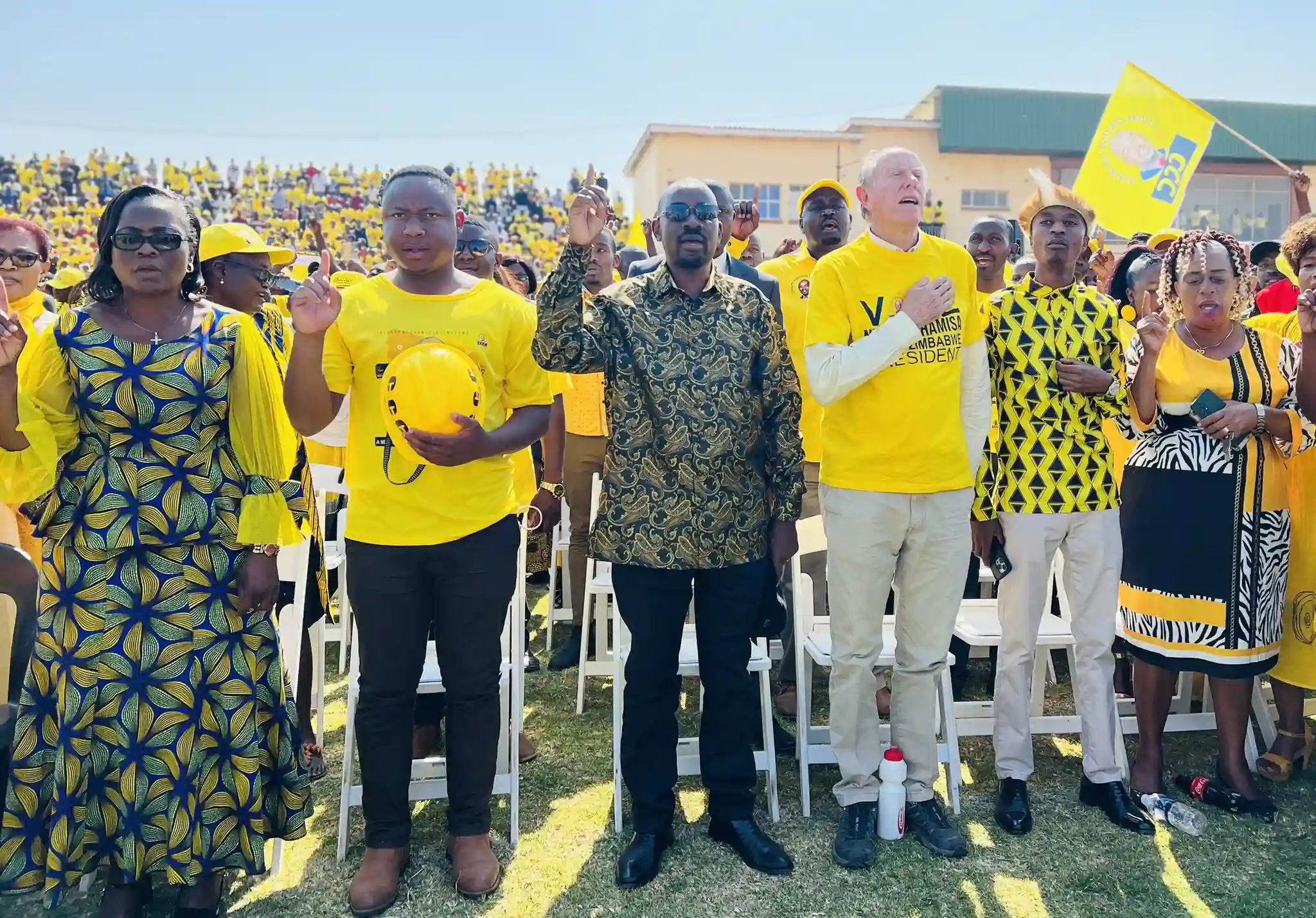Bulawayo Mayor, David Coltart, has stated that he is not resigning from the Citizens Coalition for Change (CCC) party yet. The former Education Minister said he wants to consult with his constituents before making any decisions. There has been pressure on CCC officials to clarify their stance following the departure of Nelson Chamisa, who claims that the party has been infiltrated and hijacked by the ruling ZANU PF and its allies in the CCC. Some people expect “genuine” CCC officials to resign, like Chamisa and Fadzayi Mahere did. However, others believe they should consult the people who elected them or wait to see what Chamisa plans to do next.
Coltart explained that he is consulting with various groups, including the residents of Bulawayo, trusted advisors, church elders, and his family. He said:
I am still consulting a broad cross range of those who elected me, the residents of the great city of @CityofBulawayo, trusted advisors, the elders of my church and of course my family. I will issue a clear statement regarding my intentions before next week. In essence my focus is on those I am directly responsible to.
In the meantime, Coltart expressed concern about the ongoing water crisis in Bulawayo caused by the dry weather. He said he has been in communication with government ministers regarding short, medium, and long-term water solutions. He urged residents to conserve water and report any leaks to the Bulawayo City Council. He said:
I am deeply concerned by the ongoing dry weather affecting @CityofBulawayo. We have had precious little run off to our dams this season and most rivers aren’t flowing after this dry spell. We have very few weeks of the rainy season left. In the last few weeks I have written to both the Ministers of Local Government and Water setting out what our short, medium and long term water solutions are. I have asked central Government to assist BCC as we tackle this crisis. Until we get these measures in place I urge all residents to conserve water and to immediately report water leaks to BCC. We will get through this crisis – but only if we all act responsibly together.
The government this year allocated ZW$7 billion and a borehole drilling rig to address the water shortages in the city. They are also working on the Lake Gwayi-Shangani project, which is expected to start pumping water in 2025. The funds will be primarily used to repair broken-down boreholes at the Nyamandlovu Aquifer, aiming to pump 16 megalitres of water per day at full capacity.
Bulawayo has been grappling with water shortages for many years due to a combination of factors, including rapid population growth, ageing infrastructure, and limited water resources. The situation has been exacerbated by climate change and the unpredictability of rainfall patterns. To address the long-term water shortage, the Gwayi-Shangani Dam was proposed in 1912 as part of the Matabeleland Zambezi Water Project (MZWP). However, due to a lack of political will and insufficient funding, the dam has yet to be completed. The project was recently awarded to the China International Water and Electric Corporation.
Once finished, the Gwayi-Shangani Dam will be the third-largest inland water body in Zimbabwe, following Tokwe-Mukosi and Lake Mutirikwi. The dam is located in Region Four, which experiences low rainfall and high temperatures. The government has invested over US$122 million in the project. In 2012, the government took over the Matabeleland Zambezi Water Project (MZWP) from the Matabeleland Zambezi Water Trust, led by the late Dumiso Dabengwa. The government had promised to accelerate the project’s completion but had limited success. Engineers estimate that the dam will be 70% complete within three to four years, with water impounding expected to begin in the 2024/2025 season.

